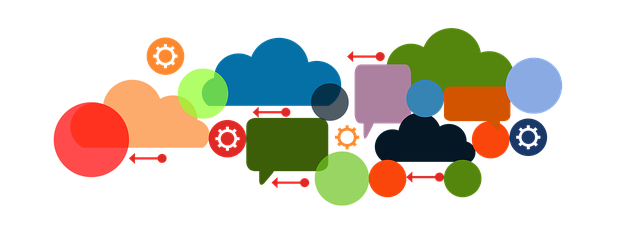AI Business Predictive Analytics solutions, powered by machine learning, are transforming industries, particularly culinary arts through AI kitchen automation. This technology optimizes menu planning, predicts ingredient availability, automates tasks, enhances demand forecasting, inventory management, and enables personalized marketing. By leveraging AI, chefs can focus on innovation while ensuring precision and consistency in food production. While implementing AI kitchen automation brings significant efficiency gains, challenges like data privacy, costs, and staff training must be overcome through robust security and effective training for full potential realization.
“Explore the transformative power of AI business predictive analytics solutions, especially in the dynamic realm of culinary arts. This article delves into how advanced algorithms enhance restaurant operations through AI kitchen automation. We uncover how these technologies revolutionize the chef’s experience, streamlining processes and improving efficiency. Additionally, we weigh the benefits and challenges of implementing AI in culinary, offering insights for professionals aiming to integrate this game-changing technology, specifically focusing on AI kitchen automation for chefs.”
- Understanding AI Business Predictive Analytics Solutions
- AI Kitchen Automation: Revolutionizing the Chef's Experience
- Benefits and Challenges of Implementing AI in Culinary Operations
Understanding AI Business Predictive Analytics Solutions

AI Business Predictive Analytics solutions are transforming the way businesses operate by leveraging machine learning algorithms to analyze vast amounts of data and make accurate predictions. These tools can provide insights into customer behavior, market trends, and operational inefficiencies, allowing companies to make informed decisions and stay ahead of the competition. In the culinary industry, AI kitchen automation for chefs is a prime example of predictive analytics in action. By using AI-driven systems, chefs can optimize menu planning, predict ingredient availability, and automate repetitive tasks, enhancing overall kitchen efficiency and customer satisfaction.
Predictive analytics solutions enable businesses to identify patterns and correlations within their data that might not be immediately apparent. This capability is invaluable for forecasting sales, managing inventory, and personalizing marketing strategies. In the context of AI kitchen automation, predictive models can anticipate demand for specific ingredients, helping culinary teams streamline their procurement processes. Furthermore, these systems can learn from historical data to suggest innovative recipes or optimize cooking times, ensuring consistently high-quality dishes.
AI Kitchen Automation: Revolutionizing the Chef's Experience

AI Kitchen Automation is transforming the culinary landscape, offering chefs a revolutionary tool to streamline their workflow and elevate their creative process. By leveraging machine learning algorithms and sophisticated sensors, AI-powered systems can autonomously handle various kitchen tasks, from ingredient preparation to cooking techniques. This technology ensures precision and consistency in food production, allowing chefs to focus on innovation and flavor development.
The integration of AI into kitchen automation provides a personalized and efficient experience. It can adapt to individual chef preferences, learn from their unique recipes, and offer tailored suggestions for ingredient substitutions or cooking times. This not only saves time but also encourages experimentation and the exploration of new culinary possibilities. With AI Kitchen Automation, chefs can embrace a seamless blend of technology and artistry, pushing the boundaries of modern gastronomy.
Benefits and Challenges of Implementing AI in Culinary Operations

Implementing AI in culinary operations offers a myriad of benefits, revolutionizing how kitchens function and enhancing overall efficiency. With AI kitchen automation for chefs, tasks can be optimized, from recipe scaling and ingredient substitution to inventory management and predictive demand planning. These solutions enable chefs to make data-driven decisions, ensuring precise portions, minimizing waste, and maximizing menu profitability.
However, challenges exist when integrating AI into culinary settings. Data privacy and security are paramount, as kitchen systems collect sensitive information about ingredients, customer preferences, and pricing strategies. Additionally, the initial implementation cost and ongoing maintenance can be significant barriers for smaller restaurants. Training staff to use AI tools effectively is also crucial, ensuring they embrace technology without compromising their culinary creativity or work-life balance.
AI business predictive analytics solutions, particularly in the realm of AI kitchen automation for chefs, are transforming culinary operations. As we’ve seen, these tools offer significant benefits like enhanced efficiency and improved decision-making. However, they also present challenges that must be addressed, such as data privacy concerns and initial implementation costs. By embracing these technologies, restaurants can elevate their game, ensuring a vibrant and competitive future in the food industry.
